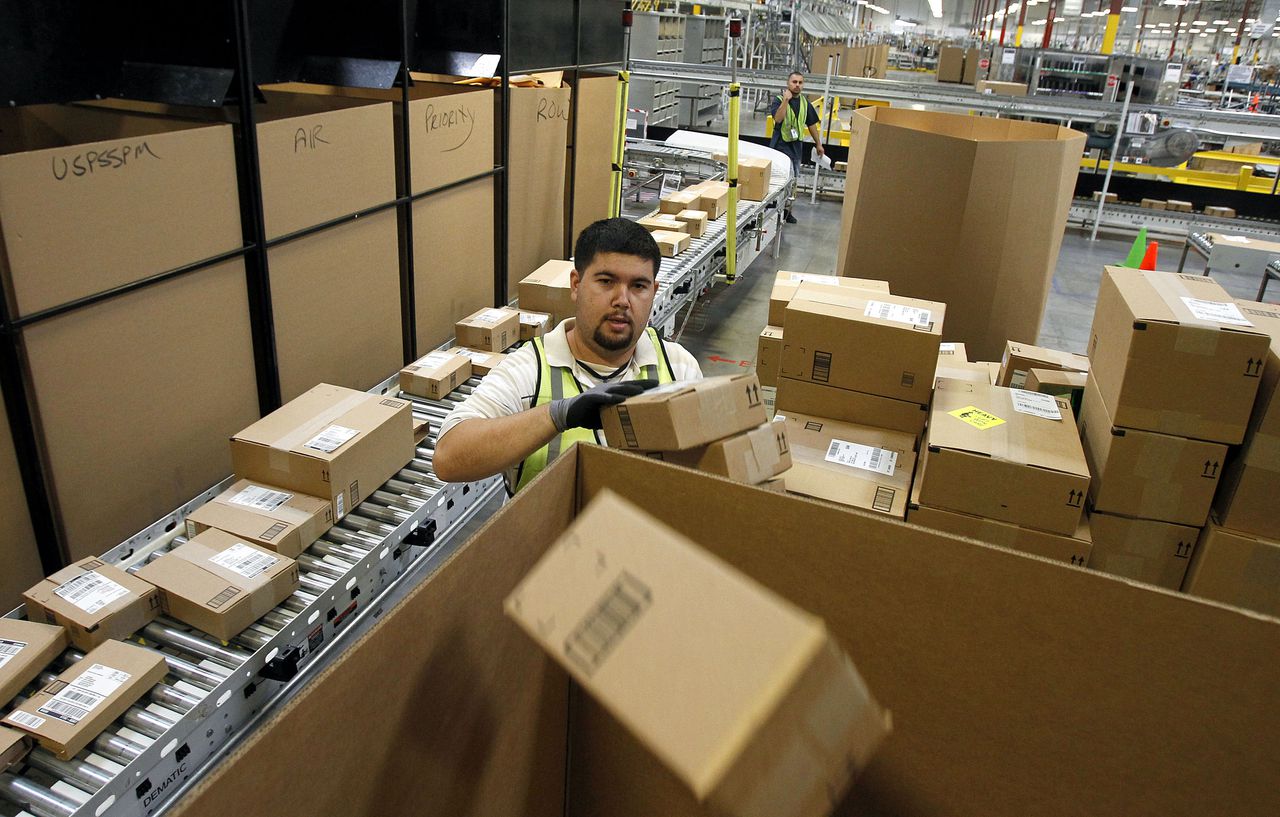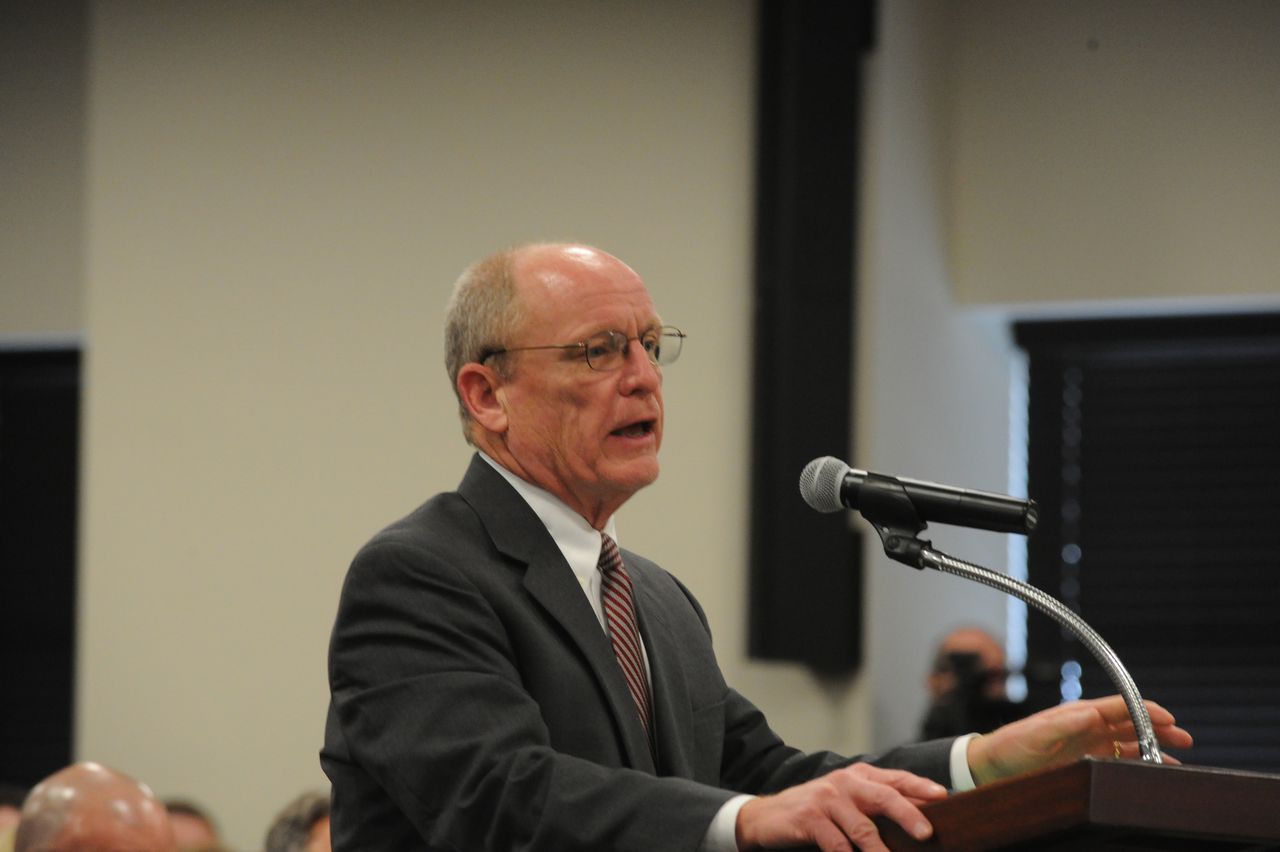Alabama cities, counties reignite high stakes battle over online sales taxes
The battle between the state’s largest cities and the county commission association over the state’s online sales tax program is reigniting as the stakes grow higher over a revenue source exploding in popularity.
At issue is whether more transparency is needed to pinpoint which cities are the most popular for e-commerce activity, and if those cities should be recouping more revenues from a pot of funds that has grown more than 65% in two years, and well over 1,000% since its introduction six years ago.
Related:
The issue surfaced last week after the mayors of the state’s 10 largest cities included online sales tax transparency among their legislative priorities for the spring session.
In short, the cities seek to find out where online sales transactions are being delivered so they can compare that data with the current level of distributions to their cities.
“With transparency, we can ensure that our schools, police departments and road networks are receiving the investments they have earned,” Tuscaloosa Mayor Walt Maddox said.
The head of the state’s county commission association is worried the mayors are pursuing something that might not be constitutional to torpedo Alabama’s flat 8% sales tax for online retail transactions. The program is called the Simplified Sellers Use Tax or SSUT, for short.
“Singling out SSUT participants would put the whole program in peril,” said Sonny Brasfield, executive director with the Association of County Commissions of Alabama.
‘Fair share’
The brewing showdown could come if legislation is introduced to require more disclosures of online retail transactions in Alabama. So far, no bill has been introduced.
It would also likely lead to a rematch of past skirmishes over the issue of online tax distributions in Alabama. The big city mayors and the county association battled in 2018 and 2019 over distribution levels within the SSUT program, originally adopted in 2015 and instituted in 2017.
The stakes continue to rise because Alabama’s online sales tax revenue system is soaring in popularity as shoppers flock to the internet.
The SSUT program, since 2017, has grown over 1,100% from generating $52.4 million during its first year to $634 million during the state’s last fiscal year. Alabama’s fiscal year runs from October 1 to September 30.
The $634 million is also up from $520.9 million during fiscal year 2021, a 22% increase in one year. During a two-year period since fiscal year 2020, the SSUT revenues are up more than 65%.
The mayors representing Alabama’s “Big 10″ mayors argue that more transparency into the SSUT program would be beneficial to taxpayers and small business operators who own brick-and-mortar stores within their jurisdictions. Those businesses must assess higher sales tax rates for purchases at their stores than the 8% flat tax that is assessed for online sales made within Alabama.
Sales tax rates assessed on shoppers at a physical store differ among cities in Alabama. In Mobile, for example, the sales tax rate is 10%. Of that, 5% of the revenues from an in-store purchase are diverted into the city’s coffers. Only 1% is diverted to Mobile County.
The state receives the same 4% from both sales online and in a physical store.
The Big 10 mayors are a coalition of mayors representing on behalf of the state’s largest cities. They include mayors in Huntsville, Birmingham, Mobile, Tuscaloosa, Montgomery, Auburn, Dothan, Decatur, Madison, and Hoover.
“Alabamians deserve to know that everyone is paying their fair share of taxes, especially out of state technology companies and corporations,” Maddox said. “Alabama’s small businesses play by the rules and so should everyone else. The Big 10 Mayors realize this, which is why we support accountability.”
‘Private and essential’
Sonny Brasfield, the executive director of the Association of County Commissions of Alabama (ACCA), speaks before the Alabama House Transportation, Utilities and Infrastructure Committee on Thursday, March 7, 2019, in support of three pieces of legislation he is sponsoring that would implement a 10-cent increase in Alabama’s fuel tax to help finance the Rebuild Alabama Act. The committee meeting drew a standing room-only crowd at the State Capitol in Montgomery, Ala. (John Sharp/[email protected]).
Brasfield said he believes the mayors are trying to angle for more distribution of the online sales tax pie.
Alabama law stipulates the 8% SSUT tax be divided up into two parts: 50% of the tax revenues are diverted directly to the State Treasury, where 75% are allocated into the state’s General Fund and 25% into the Education Trust Fund.
The other half of the 8% SSUT is divided up among the state’s cities and counties based on population sizes. Cities are allowed 60% of those revenues, while counties get 40%.
Cities, in the past, have expressed a sore spot for the divide believing they have been short-changed. They also have questioned why they are not getting more of the online tax revenues, believing that more of the e-commerce activity is occurring within their jurisdictions.
But without more online sales tax disclosures, they argue there is no way of knowing.
Brasfield said the Alabama Department of Revenue has, for years, kept a record how much each city and county jurisdiction receives from the annual SSUT.
“I am not sure what they mean by accountability and transparency,” he said.
Brasfield said if the mayors want to know the amount of online delivery sales to each jurisdiction in Alabama, it could get tricky.
He said the state would have to repeal confidentiality provisions of the Taxpayers Bill of Rights which protects disclosure of how much a specific retailer allocates in sales tax revenues to a particular taxing jurisdiction. For instance, specific sales tax data from a Walmart or Home Depot store located within a certain city or county is not considered public information.
“No city in Alabama can disclose the amount of sales tax paid by an individual business inside its jurisdiction,” Brasfield said. “That information is private and essential to a business’ success.”
‘Clear picture’
The mayors say they are not interested in how much a specific business generates, but how much online sales tax activity is attributed to their jurisdiction.
“It’s very odd that the president of the County Commission Association is opposed to transparency of state tax revenues,” Mobile Mayor Sandy Stimpson said. “All we are asking for is information from the state on how online sales taxes are distributed.”
He added, “We think that cities, counties, school systems, and Alabama taxpayers ought to be able to get a clear picture of our how online sales tax system works in order to have certainty and plan for the future and know that our local small businesses are being treated fairly.”
The Alabama Department of Revenue provides information as to how much of the SSUT is distributed to cities. For instance, the City of Mobile received $13.3 million from March 2022-March 2023, according to state records.
Representatives with the Big 10 mayors have requested more detailed reports of online sales activity, but they say they not received reports from the Alabama Department of Revenue.
Frank Miles, a spokesman for the agency, said the law creating the SSUT program prohibits the type of disclosures the mayors might be seeking.
“To ensure the program did not unduly burden businesses and would pass constitutional muster, the Legislature worked into the law, ‘The required monthly reporting from the eligible seller shall only include statewide totals of the simplified sellers use taxes collected and remitted, and shall not require information related to the location of purchasers or amount of sales into a specific locality,’” he wrote in an email to AL.com.
‘Program at risk’
Janelle Fritts, a policy analyst with the Tax Foundation, a Washington, D.C.-based think tank, and who has written about online sales tax structures since the 2019 U.S. Supreme Court decision in Wayfair vs. South Dakota, said that cities like Mobile are receiving lower sales tax revenues under the flat tax structure than the sales taxes assessed on purchases at a brick-and-mortar store.
The Wayfair decision is viewed as a landmark case that bolstered states’ abilities to collect taxes on online sales.
In Mobile, for instance, brick-and-mortar retailers – those with a physical presence within the city limits – assess a 10% combined sales tax rate. Of that, half of the revenues goes into the city’s coffers.
“In those jurisdictions, taxpayers face a lower rate on an intrastate sale than they do on an interstate one, treatment which discriminates against interstate commerce and could potentially lead to legal challenges, depending on how motivated some sellers might be,” Fritts said.
Fritts co-authored a 2019 paper that reports on the flat tax SSUT structure applicable only in Alabama and Louisiana. In Alabama, she noted that while the state sales tax rate is 4 percent, the average local rate is 5.16 percent – or higher than the SSUT’s flat tax rate of 4 percent.
What that means is that remote sellers are paying less than brick-and-mortar businesses operating within a jurisdiction. In fact, the SSUT rate makes it an “excellent deal” for a remote sale in Mobile, but far less equitable in a smaller town where the combined sales tax rate is under 8 percent, she wrote.

In this Nov. 11, 2010 file photo, Ricardo Sandoval places packages in the right shipping boxes at an Amazon.com fulfillment center, in Phoenix. Products are flying off the shelves at Amazon warehouses across the county as Californians prepare to start paying sales taxes on online purchases. The change, which takes effect Saturday, Sept. 15, 2012, will pave the way for the e-commerce giant to open warehouses in California and offer same-day shipping to customers. (AP Photo/Ross D. Franklin, file)AP
“Indeed, in 189 jurisdictions – most of them quite small – the combined sales tax rate is less than 8 percent,” Fritts wrote. “In those jurisdictions, taxpayers face a lower rate on an intrastate sale than they do on an interstate one, treatment which discriminates against interstate commerce.”
Brasfield said he believes most Alabamians are likely to be comfortable with the mayors not knowing their online commerce activity.
“I don’t believe any citizen of Alabama wants the mayors to know how many packages are left on their front door or how much money they are spending with a particular vendor,” he said. “Such a requirement would fly in the face of the U.S. Supreme Court that allows SSUT to be constitutional in the first place.”
He said counties are “not willing to put this program at risk.” He also believes a majority of mayors in Alabama are also supportive of the status quo.
Gregory Cochran, executive director with the Alabama League of Municipalities, said while he is unaware of legislation specifics, he believes the mayors are trying to find out information they currently cannot receive.
“I sense the mayors are trying to better understand where online sales transactions are being delivered throughout Alabama,” Cochran said. “We support and encourage collaboration between local and state officials in implementing policies that enhance quality of life and encourage economic investment in our communities across Alabama.”
